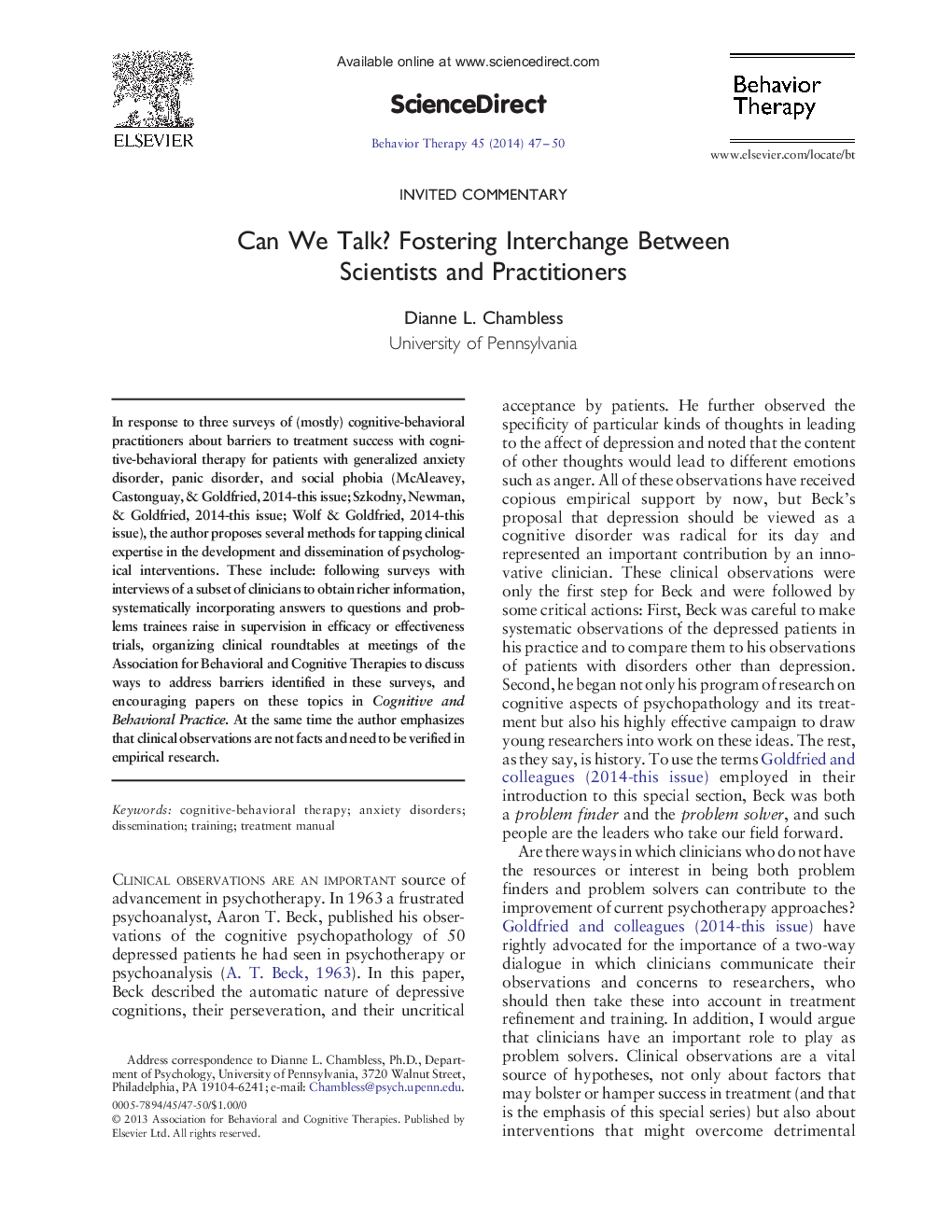| Article ID | Journal | Published Year | Pages | File Type |
|---|---|---|---|---|
| 901241 | Behavior Therapy | 2014 | 4 Pages |
•Clinical observations provide valuable ideas for overcoming barriers to successful treatment.•Treatment manuals should be elaborated with examples of how to address barriers to improvement.•Practitioners’ input should be systematically sought to develop better treatment manuals.•Methods for obtaining practitioners’ input are described.
In response to three surveys of (mostly) cognitive-behavioral practitioners about barriers to treatment success with cognitive-behavioral therapy for patients with generalized anxiety disorder, panic disorder, and social phobia (McAleavey, Castonguay, & Goldfried, 2014-this issue; Szkodny, Newman, & Goldfried, 2014-this issue; Wolf & Goldfried, 2014-this issue), the author proposes several methods for tapping clinical expertise in the development and dissemination of psychological interventions. These include: following surveys with interviews of a subset of clinicians to obtain richer information, systematically incorporating answers to questions and problems trainees raise in supervision in efficacy or effectiveness trials, organizing clinical roundtables at meetings of the Association for Behavioral and Cognitive Therapies to discuss ways to address barriers identified in these surveys, and encouraging papers on these topics in Cognitive and Behavioral Practice. At the same time the author emphasizes that clinical observations are not facts and need to be verified in empirical research.
